
The gallery contains a collection of photographs published in issues of the SAMUDRA Report and the Yemaya Newsletter, as also other ICSF publications, workshops and meetings over the years. Also to be found are more general images of fishing and fishworkers in action across the world. There are about 10,000 photos from 64 countries. The photo database is searchable by caption, country and photographer. All images are free for download, though users are requested to credit the photos to ICSF and the respective photographer.
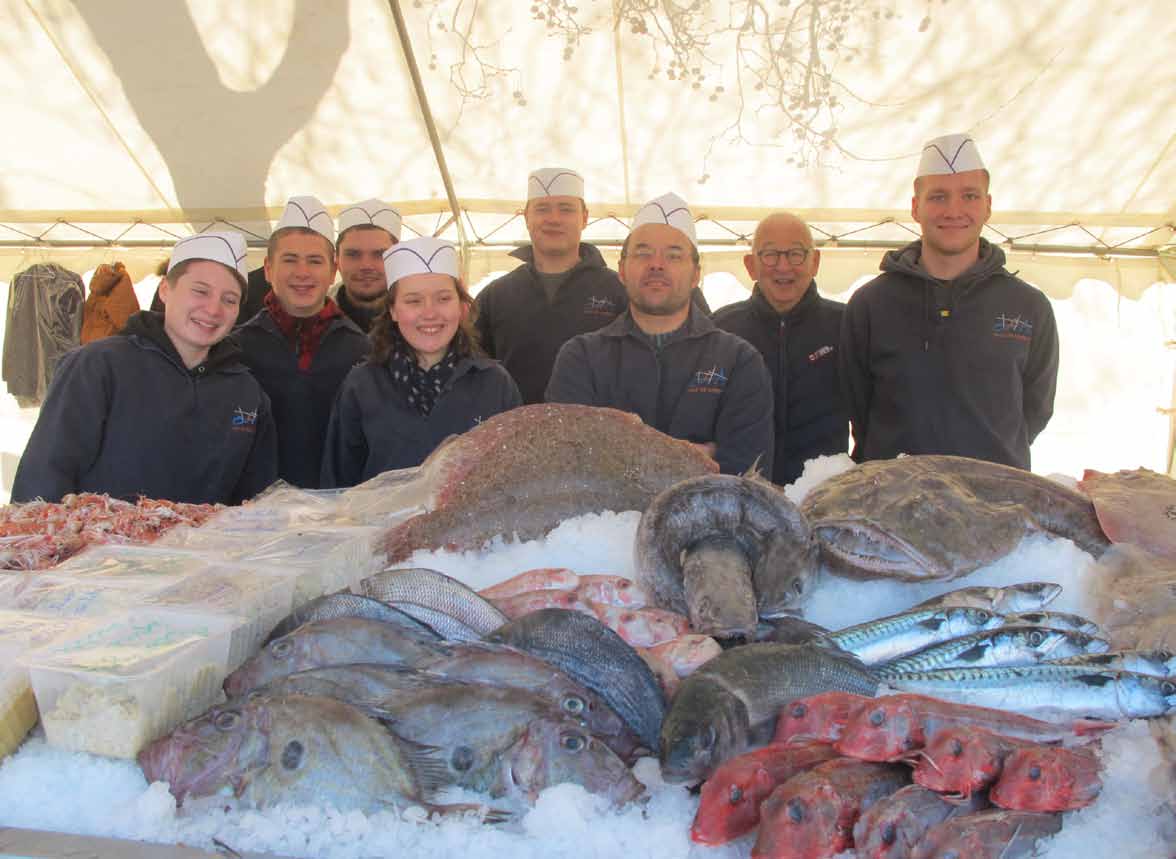
Young fish processing and selling apprentices associated with the festival, which gave visibility to the forgotten individuals and communities who strive to protect the oceans.
Photo credit: Alain Le San
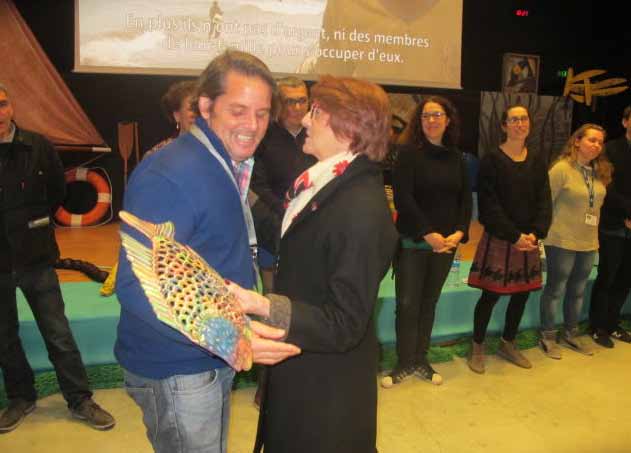
Thomas Grand receiving an award for his film Poisson d’or, Poisson Africain, which subtly analyzes the internal tensions within a fishing community in Casamance, Senegal.
Photo credit: Alain Le San
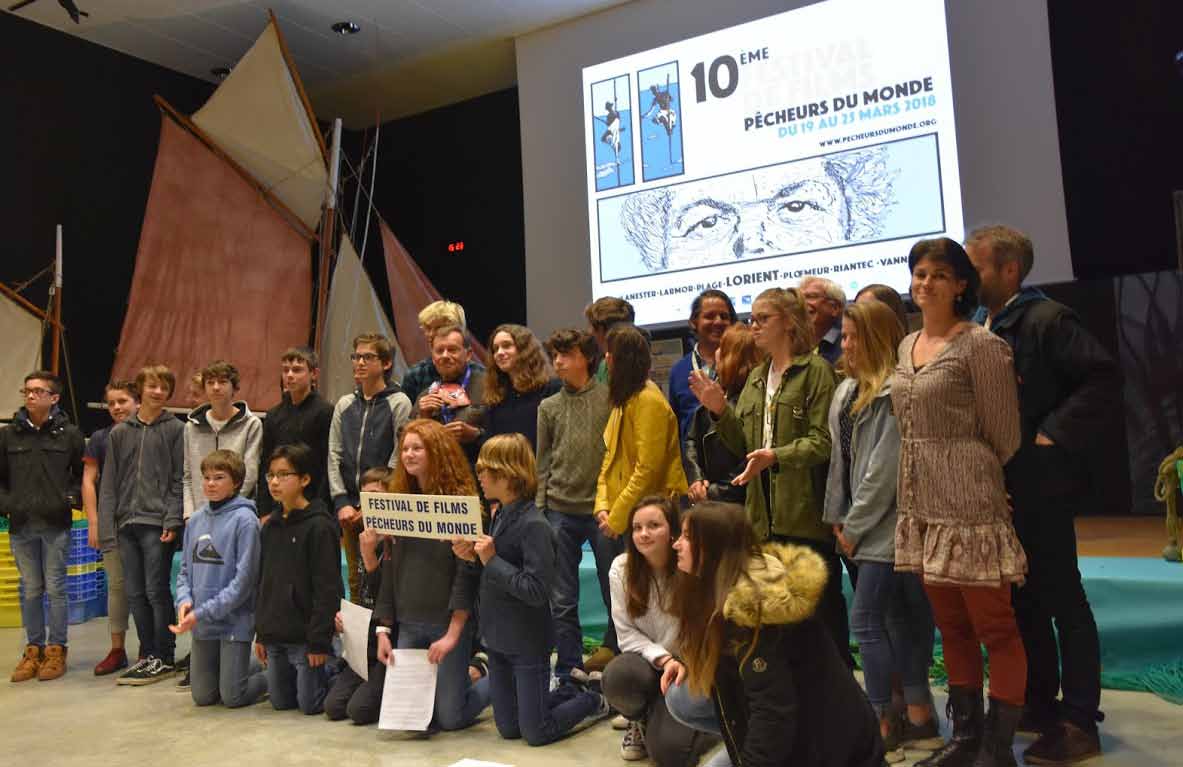
Andre Menras receives his price from students for his film, Les chevaliers des sables jaunes, about Vietnamese fishermen who employ an amazing fishing technique, using electric poles that stun reef fish, which is very selective but also exhausting and dangerous for the diving fishermen.
Photo credit: Alain Le San
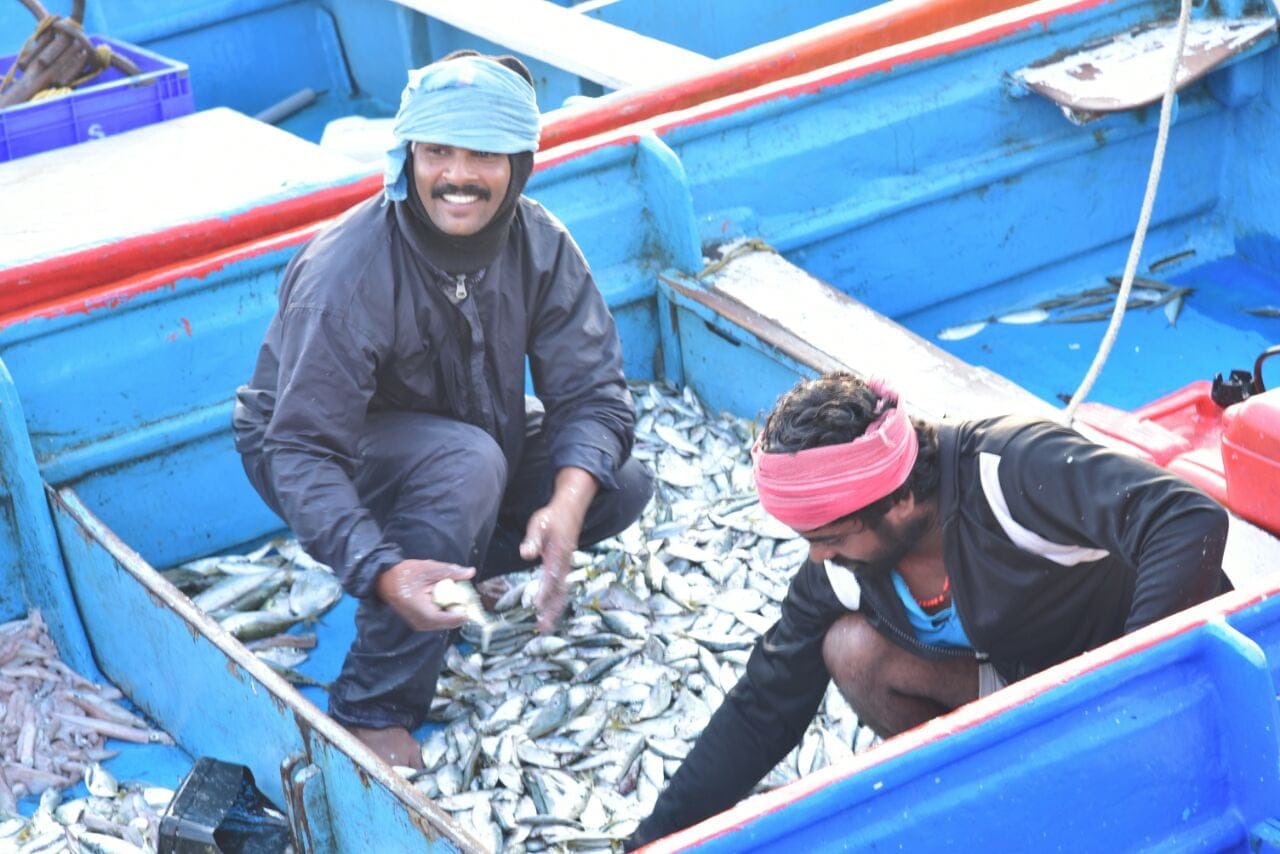
Sorting fish at Anchuthengu, Kerala, India. In our risk communication workshops, Anchuthengu fishers preferred to address the harbour-related risks first.
Photo credit: Kevin Julius
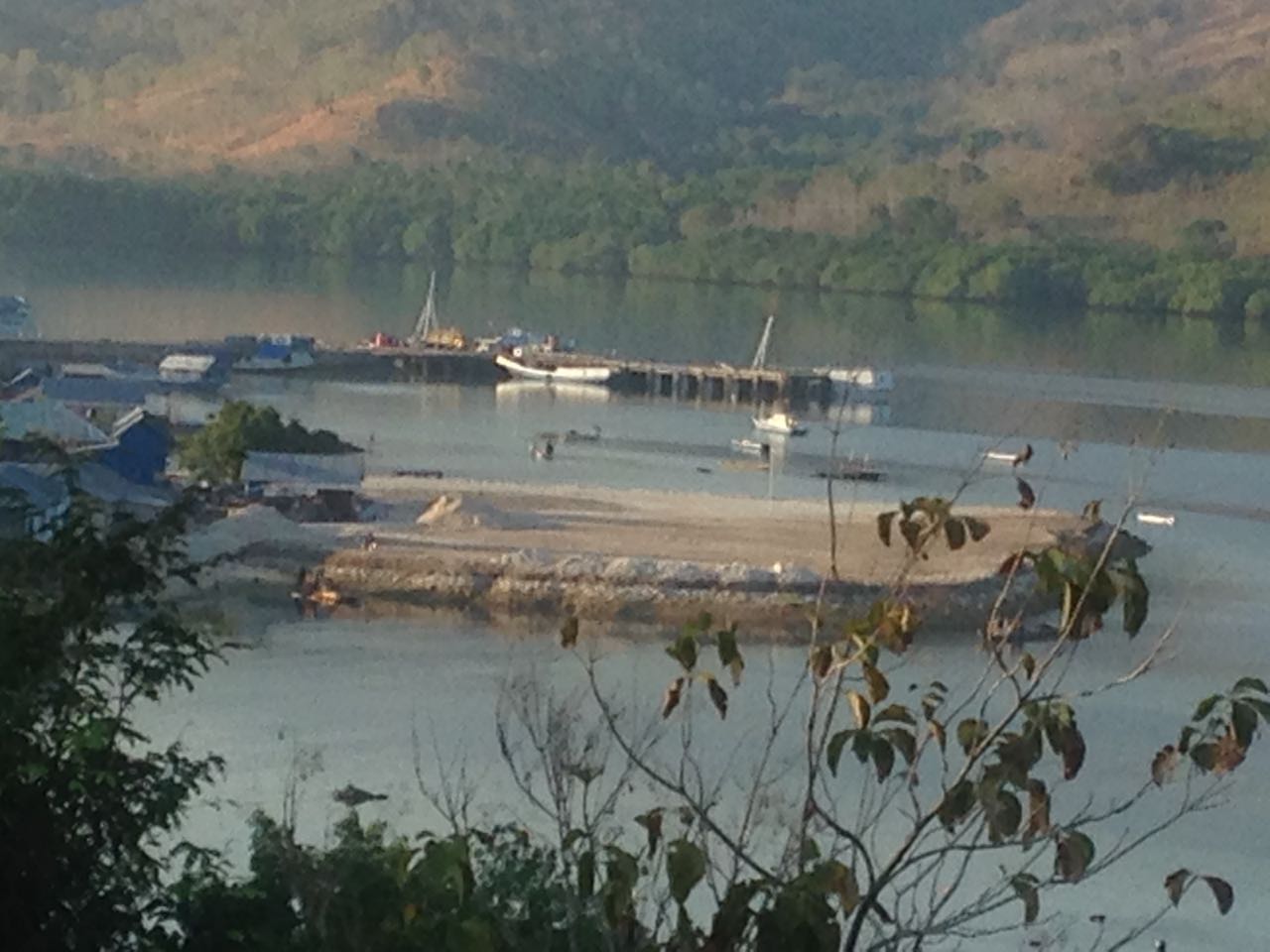
Dolulong reclamation project in Indonesia. Sea reclamation projects pose a serious threat to the future of Indonesian coastal and marine fisheries.
Photo credit: Kiara

IFISH5 delegates and their presentations explored the latest research on occupational safety and health, discussed current fisheries policy and regulations, and showcased best practices for keeping workers safe and healthy.
Photo credit: Ann Backus
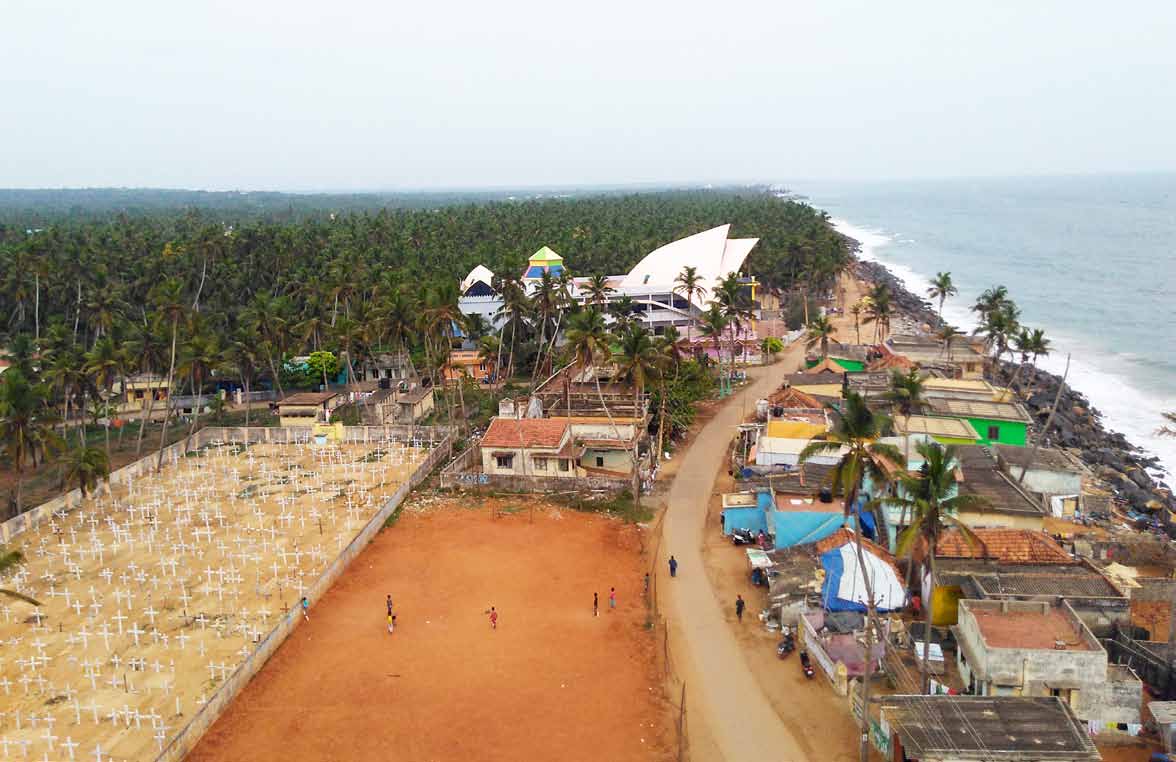
Vallavilai fishing village, Tamil Nadu, India. During discussions in the first panel of the workshop, fishermen and fisherwomen from the Ockhi-affected villages shared their experiences of the disaster.
Photo credit: Manas Roshan / ICSF
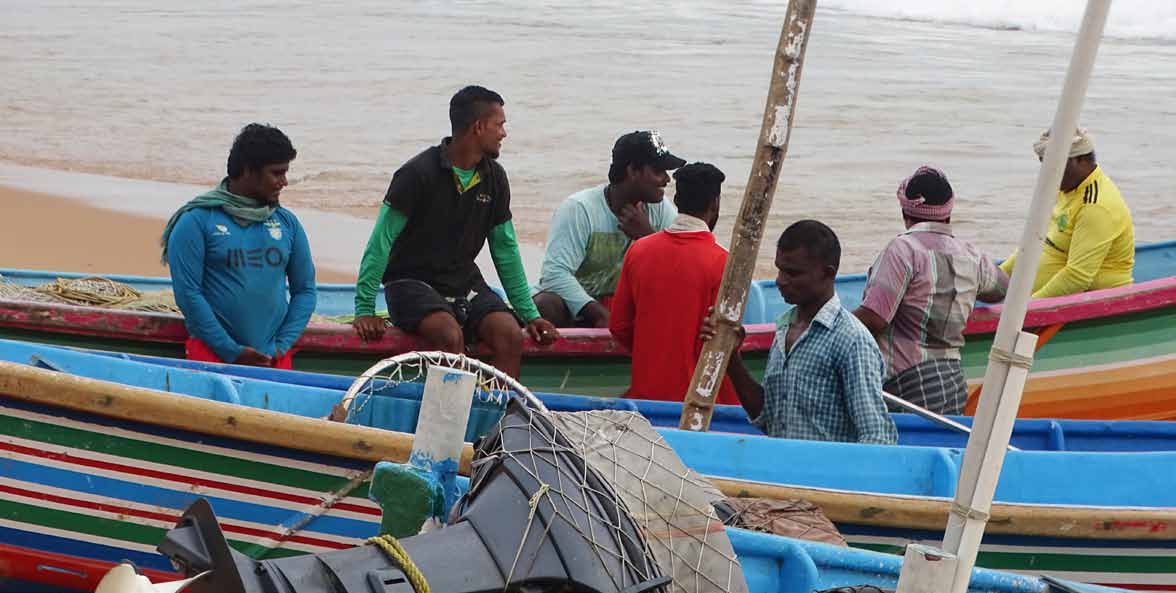
Fishers catch a light moment before setting out to sea in Marianad, Kerala, India. The collection of information on fishing activity, particularly in the small-scale sector, is a challenge because most fishers directly leave from their villages each day, and not from harbours.
Photo credit: ICSF
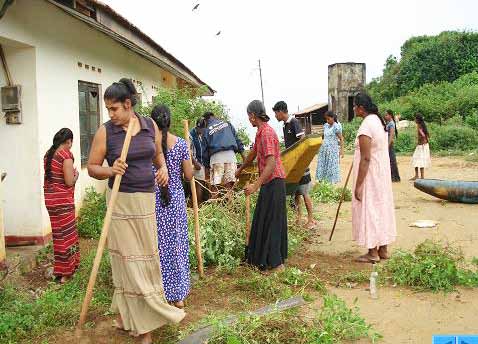
Women from a fisheries co-operative cleaning the garden around the fisheries office near Kalametiya Landing Site, Hambantota, Sri Lanka. The co-operatives' membership has grown to include even the women fisherfolk.
Photo credit: Oscar Amarasinghe
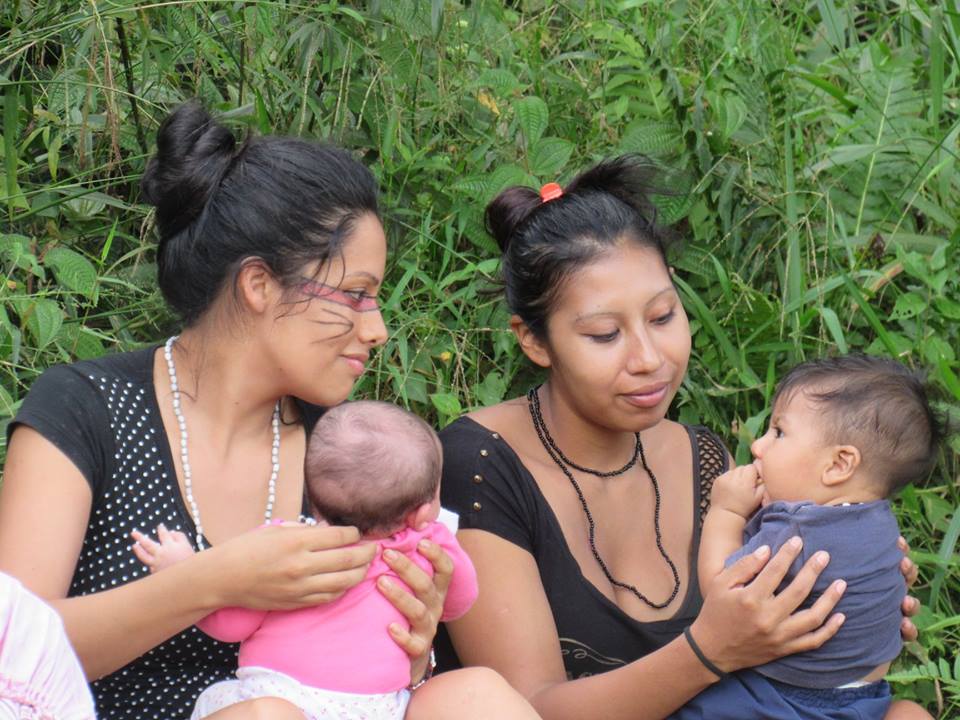
Guarani women and children. The Guarani of the subgroup Mbya have lost access to sea fish when their boats were burned, but they can still fish in the river as long as they have their land guaranteed.
Photo credit: Jekupe Mawe
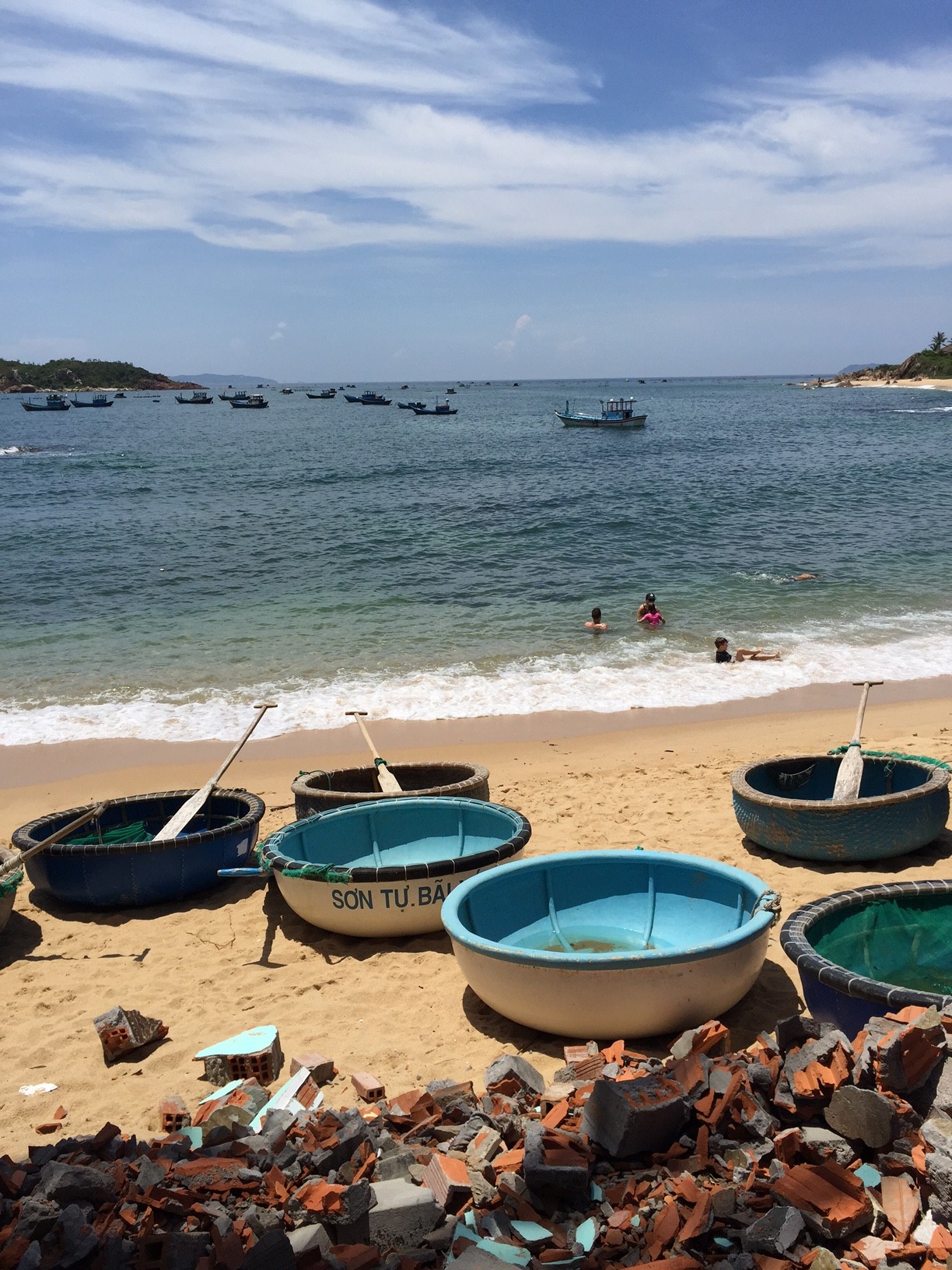
Small-scale fisheries in the small island of Quy Nhon City, Binh Dinh province, Vietnam, where fisher communities work collaboratively with the government to manage the resource.
Photo credit: Than Thi Hien
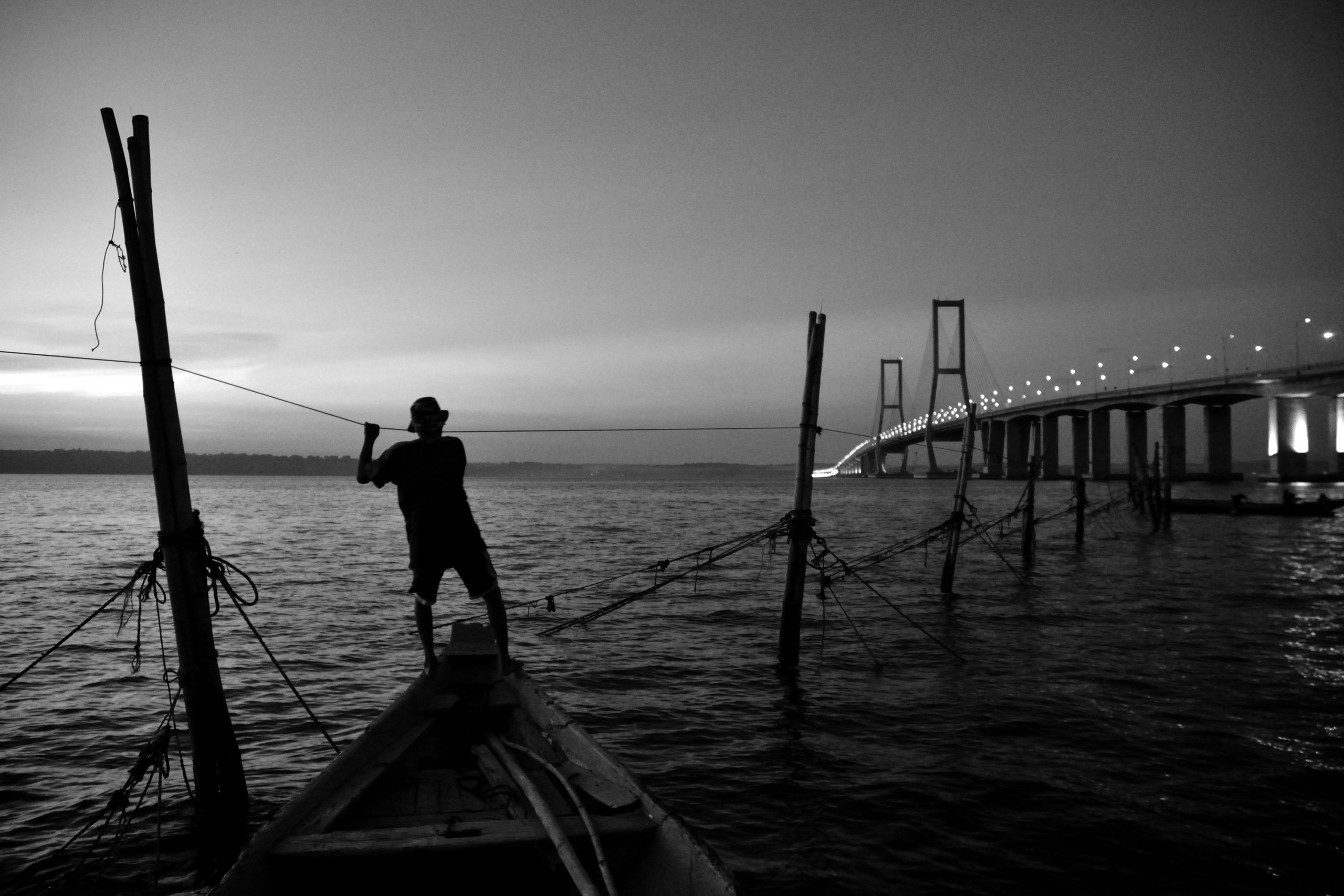
Small-scale fishers are defined as people who earn their livelihood in fishing, without using fishing vessels or using only those vessels under 10 gross tonnes (GT).
Photo credit: Emil Misbach
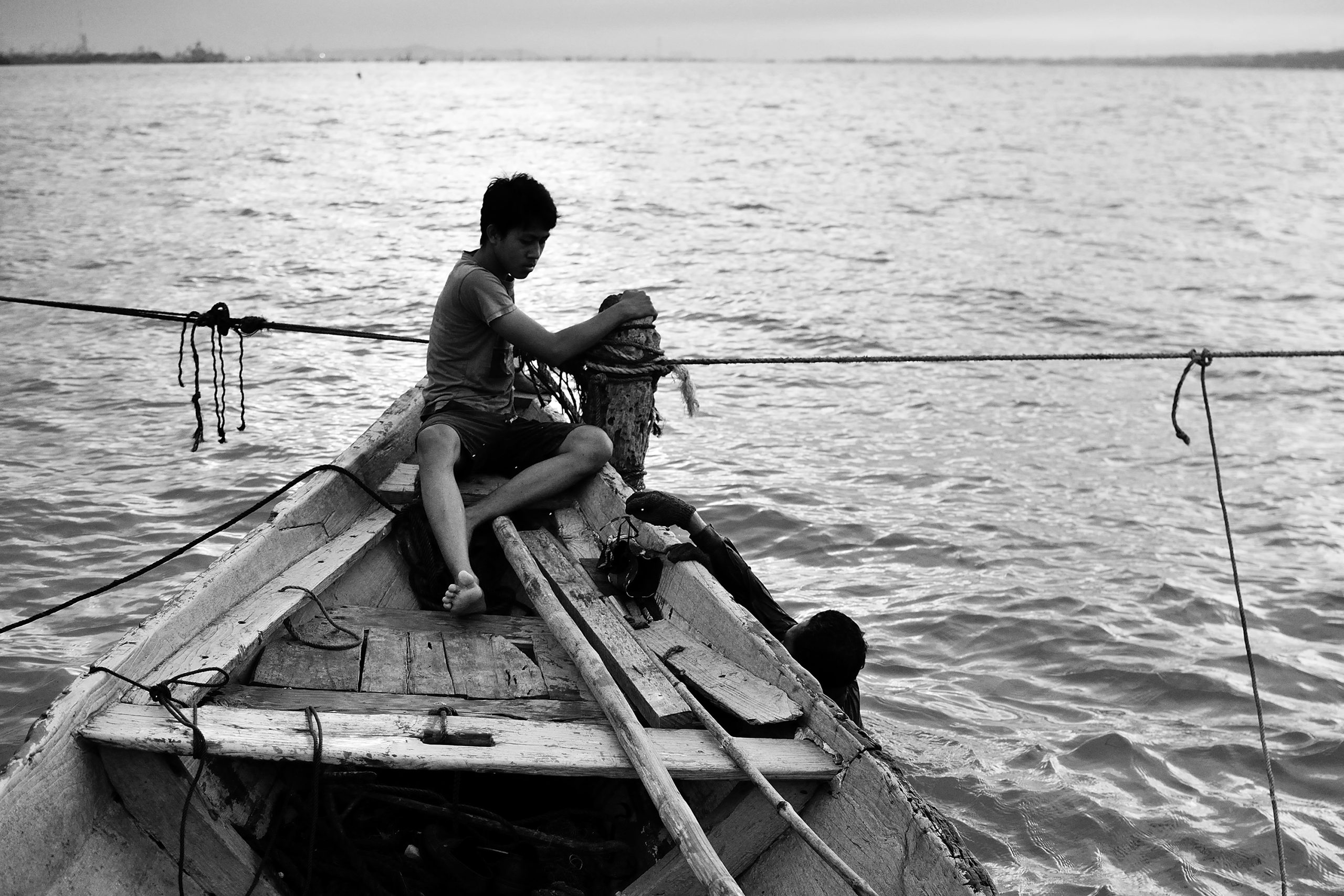
Father and son is placing traditional static fishing gear (locally called as pasang, tadah arus and pertorosan smiliar to stow nets) at Surabaya, East Java Province, Indonesia.
Photo credit: Emil Misbach